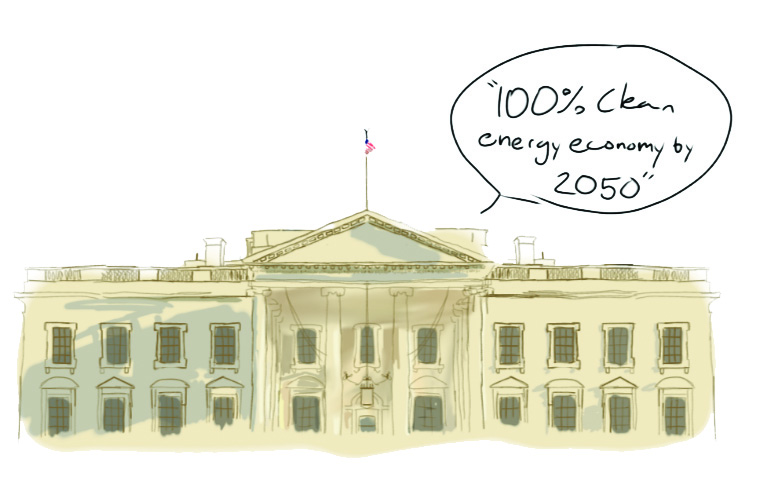The U.S. Department of Education, under Secretary of Education Betsy DeVos, announced the department will no longer hear or take action on complaints relating to the bathroom and facility use of transgender students in public schools on Monday, Feb. 12. The decision makes it clear transgender students in American public schools will no longer be able to request the Department of Education investigate claims relating to public schools violating a student’s gender identity, although individual school districts are allowed to retain transgender student policies.
With the Department of Education’s decision, students in school districts without transgender student protection policies can be prevented from using bathrooms, locker rooms and other facilities matching their gender identity without federal intervention on behalf of the students.
Transgender students within the Edmonds School District (ESD) should not be negatively affected by the Department of Education’s decision due to the ESD School Board’s policies on transgender students adopted on Dec. 9, 2014. ESD policy clearly states that discrimination against transgender students will not be tolerated and that transgender and gender nonconforming students will be provided with equal opportunity for learning and achievement.
“The District believes in fostering an educational environment that is safe and free of discrimination for all students, regardless of sex, sexual orientation, gender identity or gender expression,” the policy reads.
Related to the use of bathrooms, ESD policy specifies that students will be permitted to use bathrooms best matching their gender identity. No student can be forced to use a bathroom conflicting with their preferred gender identity.
However, ESD policy says the use of locker rooms by transgender and gender nonconforming students will be assessed on a case-by-case basis. ESD policy has the goal of maximizing transgender student social integration and providing an equal opportunity to transgender students to participate in physical education and athletic activities. Emma Holbrook
Emma Holbrook
In most cases, District policy provides that students will be allowed to use locker rooms matching their gender identity. In some cases, alternative changing spaces may be provided, such as a bathroom or other private area, or the transgender student may be provided with an alternative changing schedule. The policy emphasizes that “any alternative to locker room conditions will be provided in a manner that allows the student to keep his or her transgender or gender nonconforming status private.”
Under no conditions, even when alternative changing situations must be provided for transgender or gender nonconforming students involved in athletic activities, will students be forced to use facilities conflicting with their gender identity, per district policy.
In addition to protecting the rights of transgender and gender nonconforming students to use bathrooms matching their gender identities, the ESD has several additional policies in place to ensure the safety and security of these students.
District employees are legally prohibited from disclosing information on the status of transgender and gender nonconforming students unless the school district is legally required to or if the student in question has authorized the disclosure of their information.
GLSEN, an educational organization with the stated goal of creating safe and inclusive public schools for LGBTQ youth, issued strong condemnation of the Department of Education’s decision to revoke federal protection of transgender youth in public schools, claiming it violated the purpose of the department’s Office for Civil Rights.
“Congress created the Office for Civil Rights at the Department of Education in order to ensure that marginalized and vulnerable students had a champion,” said GLSEN Executive Director Eliza Byard. “Under Secretary DeVos, the office has abdicated that solemn responsibility for transgender youth.”
The Department of Education’s Office for Civil Rights, one of the largest federal civil rights agencies, was created to ensure the compliance of public educational institutions with several federal civil rights laws. These civil rights laws include the Civil Rights Act of 1964, the Educational Amendments Act of 1972, the Americans with Disabilities Act of 1990, the Rehabilitation Act of 1973 and the Age Discrimination Act of 1975.
GLSEN and other LGBTQ civil rights organizations charge that the Department of Education’s recent decision on transgender students violates Title IX of the Education Amendments Act of 1972. Title IX prohibits discrimination on the basis of gender in any educational program or activity receiving governmental support.
“The Office for Civil Right’s cruel new policy flies in the face of the highest court rulings on this issue, which found unequivocally that denying transgender students appropriate bathroom access is a violation of Title IX,” Byard said. “However much it may hurt Secretary DeVos’ feelings to hear it, her actions and those of her Department are hurting transgender students in concrete and far-reaching ways.”
Nearly a year before this decision, on Feb. 23, 2017, Secretary DeVos repealed parts of Title IX added from 2010 to 2016 under the Obama Administration’s Department of Education. These additions to Title IX explained that Title IX also protects transgender students from gender-based discrimination based on a student’s preferred gender identity. These sections repealed by DeVos’ Department of Education specified that all government-supported educational programs are to treat transgender students based on their preferred gender identity.
The American Civil Liberties Union (ACLU), in a statement authored by Wisconsin Rep. Mark Pocan, strongly condemned DeVos’ repeal of transgender student protections.
“Secretary DeVos rescinded the Obama-era guidance in 2017, robbing transgender students of rights which should be afforded to every public school student,” Pocan said.
The ACLU and Pocan further condemned the February decision by DeVos’ Department of Education to no longer investigate discrimination complaints filed by transgender students on the basis of sex and gender identity.
“In 2018, we should not need a refresher on basic discrimination,” Pocan said. “Rescinding someone’s rights, which have been upheld in court, on the basis of their gender identity is wrong. Refusing to listen to complaints from a certain population of students is wrong.”
From 2010 to 2017, when the Obama-era protections of transgender students were included in the oficial interpretation of Title IX used by the Department of Education, several court decisions upheld the rights of transgender students to use the facilities matching their preferred gender identity.
The Seventh Circuit Court of Appeals in 2016 upheld the right of transgender student Ashton Whitaker from Kenosha, Wisconsin to use the bathroom matching his gender identity, with the court affirming that forcing students to use facilities not matching their gender identity is illegal discrimination on the basis of sex.
However, no decision has been made by the Supreme Court regarding the use of public school facilities by transgender students. Following the February 2017 decision by DeVos’ Department of Education, the Supreme Court refused in March 2017 to hear a bathroom use complaint filed by 17 year old transgender student Gavin Grimm from Virginia after he was denied the right to use the boys’ bathroom by his local school board.
With no precedent established by the Supreme Court and the repeal of transgender student protections by the Department of Education, students in school districts without transgender student protection policies are unable to legally defend their ability to use facilities matching their gender identities.










